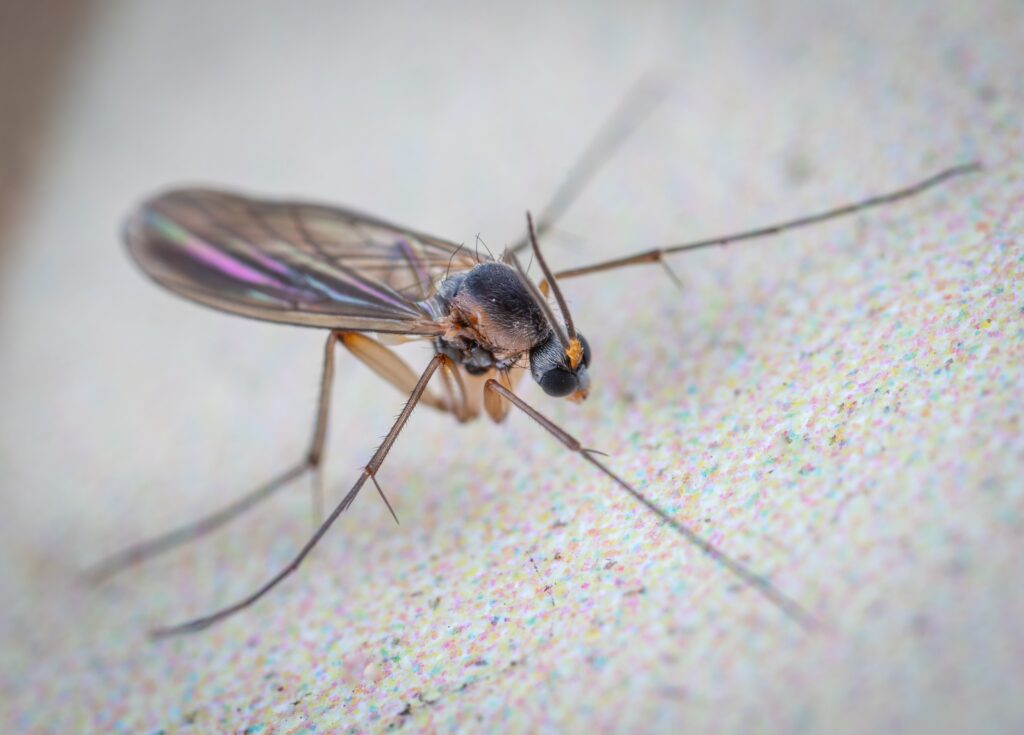Source Removal:
The first step in combating gnats and fruit flies is to eliminate their breeding grounds. These insects are attracted to decaying organic matter, especially ripe fruits and vegetables. Check your kitchen counters, fruit bowls, and garbage cans for any overripe or rotting produce. Remove and dispose of these items promptly to disrupt their breeding cycle.
Homemade Traps:
Creating homemade traps is an effective way to capture and reduce the population of gnats and fruit flies. Here are a few simple trap ideas:
- Apple Cider Vinegar Trap: Fill a small container with apple cider vinegar and add a drop of dish soap. The vinegar will attract the insects, while the soap breaks the surface tension and causes them to drown.
- Fruit Trap: Place a small piece of ripe fruit in a container and cover it with plastic wrap. Poke a few small holes in the plastic wrap. The insects will be lured in by the fruit’s scent and become trapped inside.
- Wine Trap: Pour a small amount of red wine into a container, covering it with plastic wrap and poking holes. The sweet aroma of the wine will attract the flies, and they’ll get trapped.
Cleanliness and Drain Maintenance:
Gnats and fruit flies are also attracted to damp, moist environments. Keep your kitchen and bathroom areas clean and dry, wiping up spills and ensuring that sinks and drains are free from standing water. Regularly clean your drains using a mixture of baking soda, salt, and vinegar, followed by boiling water to flush out any organic matter that could be breeding grounds for these pests.
Indoor Plants:
Overwatered indoor plants can create ideal habitats for gnats and fruit flies. Make sure your plants’ soil is properly draining and not staying soggy. Allow the top layer of soil to dry out between waterings. You can also place a layer of sand or decorative stones on the soil’s surface to discourage egg-laying.
Essential Oils:
Certain essential oils have insect-repelling properties that can help deter gnats and fruit flies. Citronella, eucalyptus, lavender, and peppermint oils are known to repel these pests. Mix a few drops of your chosen oil with water and spray it around areas where the insects are a problem.
Regular Cleaning:
Maintaining a clean and clutter-free environment is key to preventing gnats and fruit flies from taking hold. Wipe down surfaces, clean spills promptly, and dispose of trash regularly to reduce the chances of infestations.
Natural Predators:
Consider introducing natural predators into your home to help control the gnat and fruit fly population. For example, carnivorous plants like the Venus flytrap can catch and consume these insects. Additionally, small spiders or parasitic wasps can help keep their numbers in check.
Dealing with gnats and fruit flies doesn’t have to involve harsh chemicals or expensive exterminators. By practicing good hygiene, creating homemade traps, and using natural repellents, you can effectively control and eliminate these pests from your home. Remember that persistence is key; consistently implementing these DIY solutions will help you enjoy a gnat and fruit fly-free living space.

